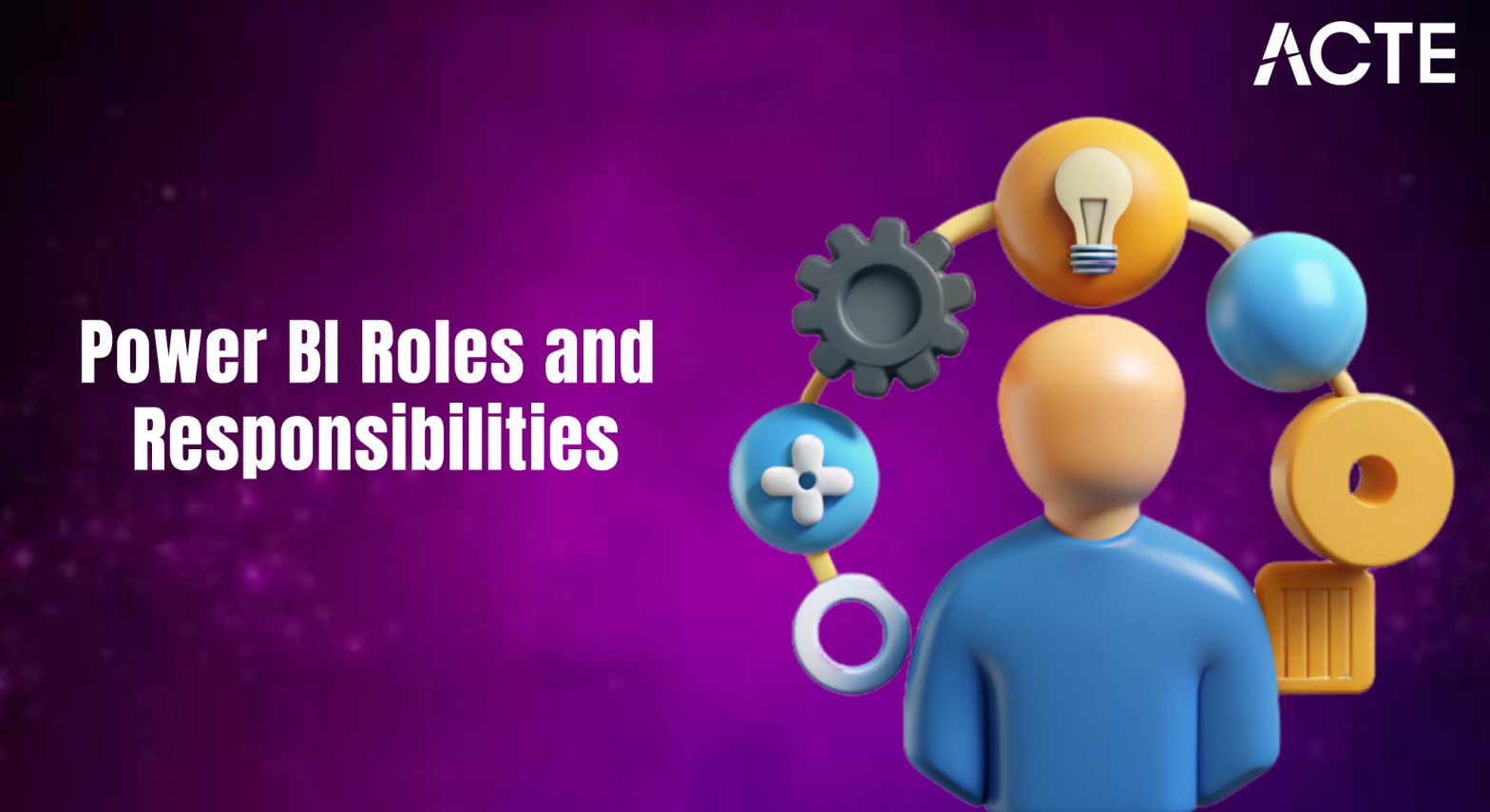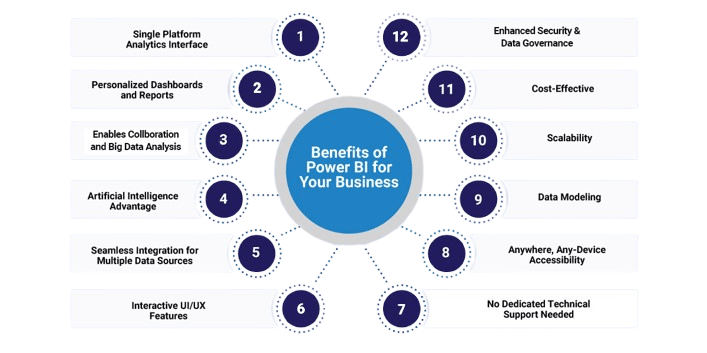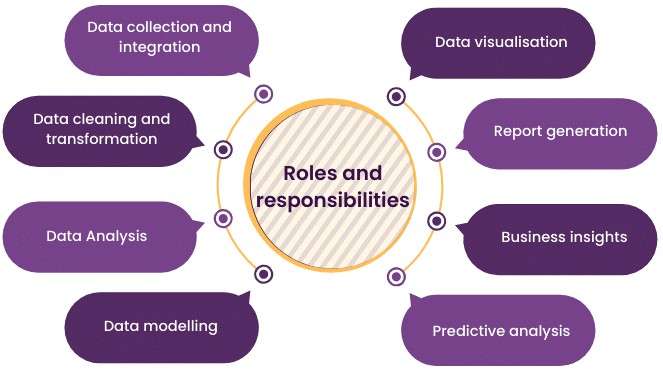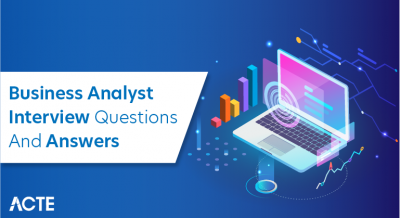
- Overview of Power BI Job Roles
- Power BI Developer Responsibilities
- Power BI Consultant Responsibilities
- Power BI Analyst Role
- Power BI Administrator Role
- Power BI Architect Role
- Data Analyst vs. Power BI Developer
- Required Skills for Each Role
Overview of Power BI Job Roles
Power BI job roles encompass a range of positions focused on data analysis, visualization, and reporting within organizations. Key roles include Power BI Developer, who designs, develops, and maintains Power BI reports and dashboards; Power BI Analyst, responsible for analyzing data, identifying trends, and generating actionable insights using Power BI; and Power BI Consultant, who provides expertise in implementing and optimizing Power BI solutions for clients. Additionally, a Power BI Administrator oversees the deployment, configuration, and security of Power BI environments, ensuring the platform runs smoothly. Data engineers also play a crucial role by integrating data from various sources into Power BI for analysis, while business intelligence (BI) developers are responsible for building the underlying data models and queries that drive Power BI reports. Professionals undergoing Business Analyst Training often collaborate closely with both data engineers and BI developers to interpret insights and support data-driven decision-making. Each of these roles collaborates to transform raw data into meaningful, accessible insights, facilitating data-driven decision-making. As organizations increasingly adopt Power BI to streamline their analytics processes, these positions are vital for enabling effective business intelligence practices across industries. Skilled professionals in these roles are expected to have strong technical expertise in Power BI tools, data modeling, and SQL, as well as the ability to communicate complex insights to stakeholders.
Are You Interested in Learning More About Business Analyst? Sign Up For Our Business Analyst Training Today!
Power BI Developer Responsibilities
- Data Modeling: Design and develop efficient data models using Power BI, ensuring the proper structure and relationships between tables for accurate reporting and analysis.
- Report and Dashboard Development:Create interactive and visually engaging reports and dashboards that provide actionable insights, using Power BI’s powerful visualization tools an essential skill for those pursuing a Power BI Consultant career path.
- Data Integration: Integrate data from multiple sources, including databases, APIs, and flat files, into Power BI to provide a unified view of business performance.
A Power BI Developer plays a crucial role in transforming raw data into meaningful insights through visually compelling reports and dashboards. They are responsible for designing, developing, and maintaining Power BI solutions that support data-driven decision-making across organizations. Below are the key responsibilities of a Power BI Developer:

- Performance Optimization: Optimize data models, reports, and dashboards for performance, ensuring fast loading times and responsiveness, even with large datasets.
- Collaborating with Stakeholders: Work closely with business users and stakeholders to understand their reporting needs and deliver solutions that meet those requirements.
- Troubleshooting and Support: Provide ongoing support, troubleshoot issues, and make updates to reports and dashboards as required to ensure they remain relevant and functional.
Power BI Consultant Responsibilities
A Power BI Consultant is responsible for providing expert guidance and support in the implementation, optimization, and management of Power BI solutions. Their primary role is to understand the unique business needs of clients and tailor Power BI tools to meet these requirements effectively. They collaborate closely with stakeholders to design customized reports, dashboards, and data models that align with organizational objectives. A Power BI Consultant also plays a key role in data integration, ensuring seamless connection between Power BI and various data sources like databases, cloud services, and APIs. They offer strategic advice on best practices for Power BI deployment, security, and performance optimization. Additionally, they support the training of end-users to maximize the utility of Power BI tools and ensure that users can interpret data insights effectively often guiding organizations as they compare Power BI vs Excel to determine the most effective tool for their analytical needs. Power BI Consultants are also involved in troubleshooting and resolving technical issues, ensuring that the platform operates smoothly. By staying updated with the latest Power BI features and trends, they recommend innovative solutions that drive continuous improvement in business intelligence processes. Ultimately, the Power BI Consultant helps organizations leverage Power BI to make informed, data-driven decisions that enhance operational efficiency and overall business performance.
To Explore Business Analyst in Depth, Check Out Our Comprehensive Business Analyst Training To Gain Insights From Our Experts!
Power BI Analyst Role
- Data Analysis: Analyze large datasets to identify trends, patterns, and key insights that can help drive business decisions.
- Report Creation: Develop and maintain interactive Power BI reports and dashboards that effectively communicate business insights to stakeholders, supporting Data Analytics Solutions for Strategic Growth across the organization.
- Data Cleansing and Transformation: Clean, preprocess, and transform raw data from various sources into usable formats for analysis, ensuring data accuracy and consistency.
A Power BI Analyst plays a vital role in analyzing and interpreting complex data to generate actionable insights for decision-making. They leverage Power BI’s powerful analytics tools to transform raw data into visualizations that help organizations monitor performance, track trends, and identify opportunities for improvement. Below are the key responsibilities of a Power BI Analyst:

- Collaborating with Stakeholders: Work closely with business users and teams to gather requirements, understand their needs, and deliver reports and dashboards that meet those needs.
- Performance Monitoring: Track and monitor the performance of reports and dashboards, ensuring they remain relevant and functional over time.
- Providing Insights: Interpret the results from Power BI reports and provide actionable recommendations to help stakeholders make informed, data-driven decisions.
- Designing Data Architecture: Develop and design data architectures that support Power BI solutions, ensuring the seamless integration of data from various sources while maintaining performance and security.
- Building Scalable BI Solutions: Create scalable and efficient Power BI solutions that can handle large datasets and complex reporting needs, ensuring performance and usability.
- Data Modeling and Integration: Design optimal data models and work with data engineers to integrate data from multiple systems, enabling accurate reporting and analysis in Power BI while also understanding how to Explore Data and Drive Growth with QlikView BI Tool as part of a comprehensive BI strategy.
- Defining Governance and Security Frameworks: Establish data governance policies, security standards, and user access controls to protect sensitive data and ensure compliance with organizational and regulatory standards.
- Collaborating with Teams: Work closely with developers, analysts, and business stakeholders to gather requirements, provide technical expertise, and ensure that solutions align with business objectives.
- Optimizing Performance and Scalability: Continuously monitor and optimize Power BI solutions, addressing performance bottlenecks, enhancing scalability, and ensuring the platform’s efficiency for end-users.
Power BI Administrator Role
The Power BI Administrator is responsible for managing and maintaining the Power BI environment, ensuring that the platform operates efficiently and securely. This role involves overseeing the deployment, configuration, and management of Power BI services and ensuring compliance with organizational security policies. A key responsibility is managing user access, permissions, and roles within Power BI, ensuring that only authorized users can access sensitive data and reports an area often emphasized in Business Analyst Training programs. The Power BI Administrator also monitors system performance, troubleshoots any issues related to the platform, and optimizes resources to ensure smooth operation. They play a critical role in managing data gateways, which connect on-premises data sources to Power BI, ensuring seamless data refreshes and data availability. Additionally, Power BI Administrators handle the implementation of best practices for report and data security, including setting up governance processes and ensuring proper data lineage. They are also responsible for managing Power BI workspaces, content packs, and app distribution to ensure effective collaboration among users. Staying up to date with new Power BI features and updates is essential, as it allows the administrator to recommend and implement improvements. In essence, a Power BI Administrator ensures the platform runs smoothly, securely, and efficiently, empowering users to make data-driven decisions across the organization.
Power BI Architect Role
A Power BI Architect is responsible for designing and implementing robust business intelligence solutions using Power BI. They play a strategic role in ensuring that data architecture, infrastructure, and reporting frameworks align with an organization’s goals. Power BI Architects work closely with stakeholders to build scalable, efficient, and secure data environments that enable effective decision-making. Below are the key responsibilities of a Power BI Architect:
Preparing for Business Analyst Job? Have a Look at Our Blog on Business Analyst Interview Questions and Answers To Ace Your Interview!
Data Analyst vs. Power BI Developer
While both Data Analysts and Power BI Developers work with data, their roles and skill sets differ significantly. A Data Analyst focuses on analyzing data to uncover insights, trends, and patterns that can inform business decisions. They often work with a range of tools like Excel, SQL, and other statistical software to process, clean, and interpret data. Their primary responsibility is to present actionable insights through reports and visualizations, which may not necessarily be built using Power BI. In contrast, a Power BI Developer specializes in creating interactive reports, dashboards, and data models specifically using Power BI. Their role involves transforming raw data into visually compelling and user-friendly reports, often integrating data from various sources into Power BI for analysis a process that can be better understood by exploring resources like a Datastage Tutorial for Beginners. A Power BI Developer needs expertise in DAX (Data Analysis Expressions), Power Query, and Power BI’s advanced features, focusing more on the development and optimization of Power BI solutions rather than data analysis itself. While both roles may involve data visualization, the Data Analyst is more focused on analysis and reporting, whereas the Power BI Developer is centered on building and maintaining Power BI environments, ensuring effective performance and scalability for business users. Ultimately, both roles complement each other, with the Analyst providing insights and the Developer enabling those insights through Power BI’s platform.
Required Skills for Each Role
The skills required for roles in Power BI vary depending on the specific responsibilities and focus areas of the position. For a Power BI Developer, key skills include proficiency in Power BI tools, DAX (Data Analysis Expressions), Power Query, and data modeling. Knowledge of SQL, data integration, and creating optimized dashboards and reports is essential, as well as an understanding of performance optimization techniques. A Power BI Analyst needs strong analytical skills, with expertise in data visualization, data cleaning, and statistical analysis skills that are often developed through comprehensive Business Analyst Training. They should be proficient in using Power BI to interpret data and communicate insights effectively to stakeholders. Additionally, knowledge of Excel, SQL, and data manipulation techniques is important. For a Power BI Consultant, strong consulting and communication skills are vital, as they need to understand business requirements and tailor Power BI solutions accordingly. Proficiency in Power BI, data integration, and best practices for deployment, governance, and security are also critical. A Power BI Administrator should have a deep understanding of Power BI service management, user security, data gateways, and system performance monitoring. They must be skilled in managing user access and deploying Power BI reports and dashboards across an organization. Lastly, a Power BI Architect needs advanced skills in data architecture, database design, and Power BI scalability, along with expertise in governance, security, and performance tuning to design robust, enterprise-level Power BI solutions.


